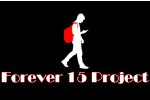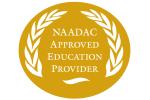This presentation will discuss the development, implementation, and benefits of a comprehensive Student Assistance Program. This model, which includes a robust program of prevention, early intervention, treatment, and recovery, creates opportunities for many students to obtain support before issues emerge and/or progress to significant illness. These efforts have long-term impacts on overall health and well-being, as well as improved academic success, which can be supported with data. For students who have identified/diagnosable substance use issues, this comprehensive model reduces barriers to accessing treatment in the community (transportation, availability, funding, etc.) and reduces disruption to academics for appointments in the community. A comprehensive system also reduces stigma and increases help-seeking behavior, which can shorten the time frame students go without care. When services are tied to the school, the burden is lessened on parents, and services can be better coordinated between systems.
Services delivered within the school building allow for better coordination between systems and encourage alignment of educational and overall student well-being, serving the whole child. School systems also benefit from increased student attendance when services can be accessed at the school, both by reducing time away from school for appointments in the community and school bonding when the full spectrum of students' needs are met in the school building. School climate and culture is improved when a robust system of behavioral health and well-being is implemented. Students who receive necessary care show an increase in academics and readiness to benefit from instruction and engage better in classes.
Objectives:
1. Introduce participants to the Student Assistance Program framework and how it is applied within school settings to address substance use across tiers of support
2. Participants will understand how this framework can be used to structure supports and services that are responsive to the individual needs of students
3. Participants will learn about the efforts undertaken across the Capital Region ESD 113 area to develop and sustain Student Assistance Programs and the impact it has had on students.







